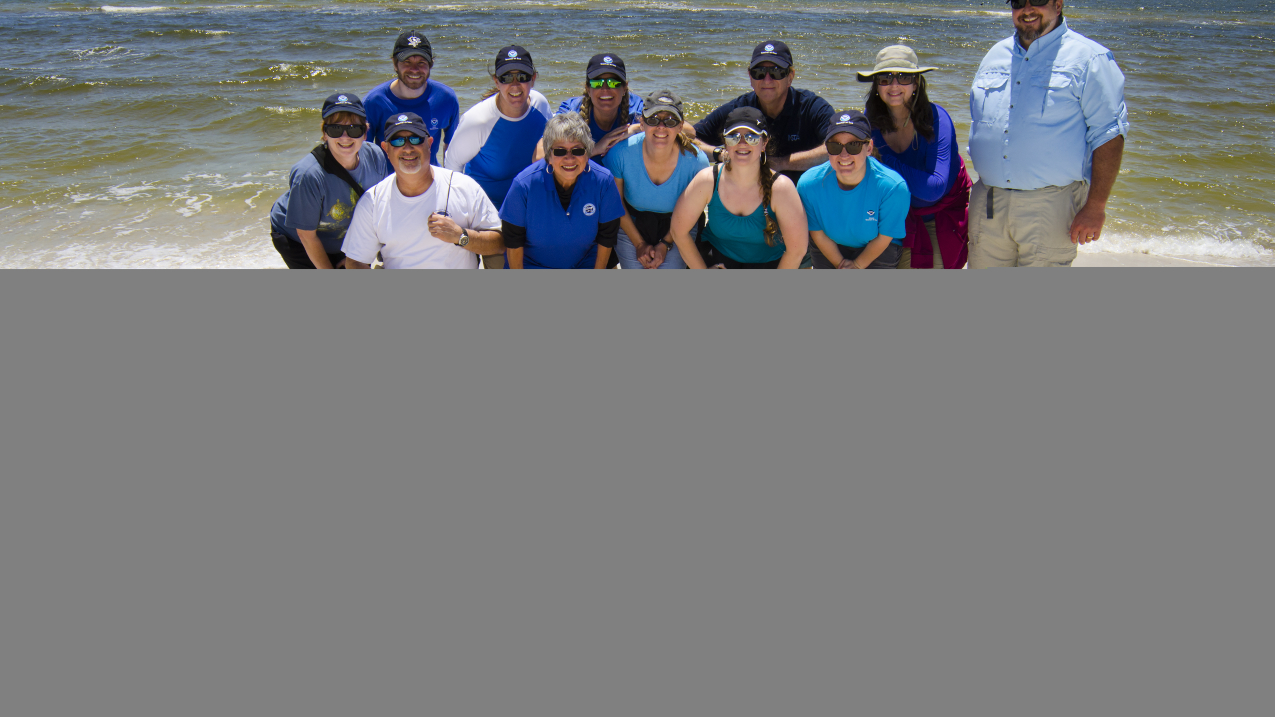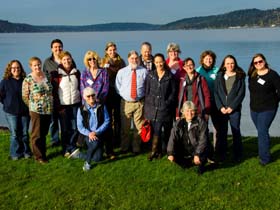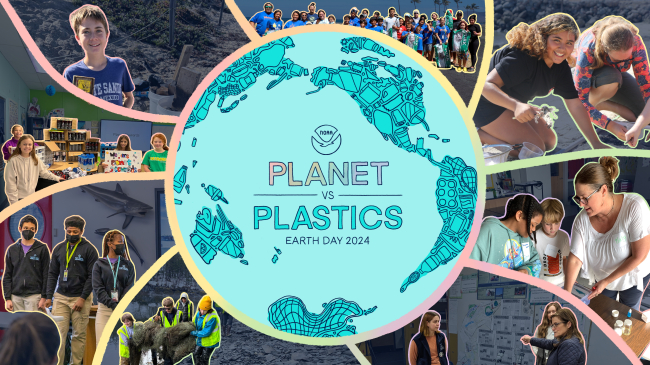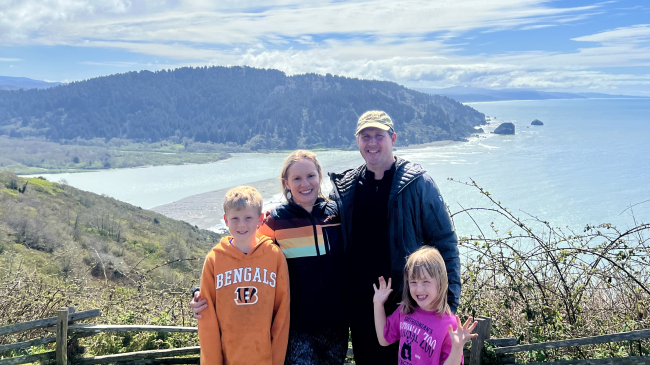NOAA’s Teacher at Sea (TAS) program provides a unique at-sea research experience for teachers, who often describe the opportunity as “transformational.” The program encourages teachers to engage with the TAS Alumni Association and connect with each other via regional workshops. Because research reveals a positive correlation between student achievement and teacher knowledge of science content and pedagogy, the Teacher at Sea Program structures these workshops to expand the teachers’ science knowledge, introduce them to local NOAA resources and research, and solidify bonds between educators.

Several NOAA Teacher at Sea alumni came together in Pascagoula, Mississippi, at NOAA's facility to learn about science research in the region, expand their STEM education network, and enhance their at-sea experience. (Image credit: NOAA Teacher at Sea Alumni Association)
In FY 2017, the TAS Alumni Association collaborated with NOAA laboratory staff in the Pacific Northwest and Gulf of Mexico to host alumni workshops. Workshops included NOAA facility tours, presentations by scientists, hands-on educational activities, and lesson plan exchanges.
All of the participants of both workshops found them so useful that they planned to incorporate content, activities, and experiences from the workshop into their curricula, with some doing so the very next week.
Eighteen alumni from six Pacific Northwest states convened at NOAA’s Western Regional Center in Seattle, Washington, in November 2016. Scientists from the Alaska and Northwest Fisheries Science Centers, the Pacific Marine Environmental Lab, and the local Weather Forecast Office gave presentations. Research topics included estimating marine mammal populations, mitigating polluted stormwater runoff, collecting environmental data through buoys and autonomous sail drones, and forecasting local weather and water conditions. The teachers also built miniature, underwater remotely operated vehicles.

“I found it very valuable to reconnect with my experience in TAS and all I learned from it,” wrote one Seattle workshop participant, “I’m excited to redesign my lessons and share them more thoroughly with the students and the community.”
Seventeen alumni from nine Gulf Coast and Southeast states then met at NOAA’s Southeast Fisheries Science Center Laboratory in Pascagoula, Mississippi, in May 2017. Local NOAA scientists taught the teachers about sea turtle, groundfish, and larval fish studies, and a shark biologist led the teachers in hands-on shark dissections. On the second day, the teachers participated in a trawling demonstration aboard NOAA Research Vessel Caretta and went ashore to clean up a nearby barrier island.
Along with hands-on experience and learning directly from scientists just as they did at sea, Pascagoula workshop participants stated that “meeting the other teachers and NOAA personnel was most beneficial” and that “this type of networking is very valuable and somewhat rare for teachers.” By connecting with fellow alumni and staying engaged in scientific research, these educators are better able to pass that knowledge on to their students long after they return from sea.
This story was originally published as part of the 2017 NOAA Education Accomplishments Report.



